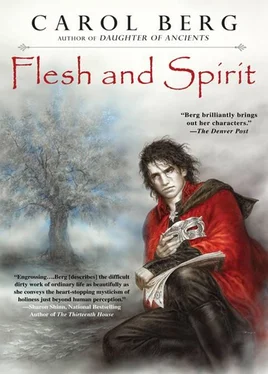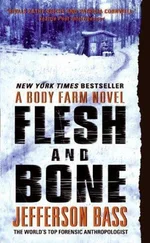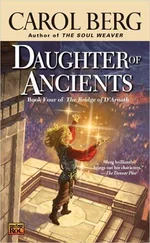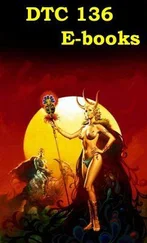As soon as he vanished into the maze of yew hedges, I left the path, squeezed through the thick barrier of hedges, and hurried across the bridle path that led into the outer courts. Sure enough, a few hundred quercae south of the Alms Court, a steep stair led to the walkway atop the abbey’s outer wall. Mumbling curses at my overtired thigh and at the cold rain that pelted my face and slickened the narrow steps, I hauled myself up the stair.
I limped northward along the wall overlooking the Alms Court. The walk came to an abrupt end at the south gatehouse tower. And snug in the tower wall sat an iron door, a convenient entry that would allow monks to take up their sanctuary watch or errant princes to slip into the abbey precincts without detection. The rain washed away their muddy footprints.
The wind blustered, flapping my gown about me like a luffing sail and bearing a nerve-scraping screech from the field below. Morbid curiosity drew me to the outer parapet where I could gaze down on the scene before the gates. Dark, still forms lay everywhere. A few shapeless creatures scurried among them on the peripheries where the rain had snuffed the torches—monks, searching for the living or blessing the dead, or perhaps scavengers, drawn from the forest on the trail of a war party like rats following a leaking grain sack.
The majority of Bayard’s men, some mounted, some afoot, crowded near a great bonfire not far from the gatehouse. A small mounted party sat slightly apart—Bayard, Max, and a third rider, a slender warrior clad in silver mail and orange cloak, her long pale hair streaming in the swirling wind. The priestess of the Gehoum.
Gehoum were not comfortable gods, not at all like the bickering husband and wife, Kemen and Samele, whose lusty inclinations had peopled the world with lesser deities and whose devotion to the earth had created the guardian Danae to enrich and protect it. Nor were they in the least like the benevolent Iero, the father/brother god of the Karish, who had promised to send angels to carry us all to his heavenly realm did we but forsake our sinful ways. Gehoum were blind immortal powers who cared naught for mortal beings who existed only by their tolerance.
Sila Diaglou, once a temple initiate herself, had traveled the cities and villages of Navronne since she was seventeen, calling for a cleansing of the corrupted temples and a return to blood penalties for those who insulted the gods—beginning with the five members of the Sinduri Council, all Karish, and certain Navrons who had degraded their bodies past redemption, that is, harlots and nivat-crazed twist-minds. When the Sinduri condemned her as apostate, she had staged a public rite of repentance in the temple square in Palinur. Rending her garments and slashing her own face and arms with a knife, she had abjured the elder gods as false and named herself high priestess of the Gehoum. Some people had wept to see Sila Diaglou’s fervent savagery. Some had laughed. No one laughed at her anymore.
Another soul-wrenching scream came from the center of the group. And then another. And another. My fingers gripped the gritty blocks of the wall until the hoarse, burbling cry abruptly ceased. The crowd shifted and surged. Then the screaming began again, but in a different timbre.
The Ardrans didn’t know where their prince had gone. They thought him left behind on the field at Wroling Wood. How many would Bayard and the priestess kill before they believed it?
Why did I stay and heed such dreadful doings? I could not aid the poor wretches. I ought to get back to the infirmary. But some stray shred of honor forbade me seek the comfort of bed while men so near were screaming out their last hours on earth.
Nor was I the only observer. A tall, full-shaven monk stood before the Gillarine gatehouse, the gold solicale on his breast glinting in the scalding light. Was Father Abbot pleased with this outcome? Was soldiers’ blood the price of his inviolate gates?
A chill shivered my flesh. Beyond the pool of firelight, the night shifted. I peered through the rain until my eyes felt screwed from their sockets. There! Another movement, like an inky worm slithering down the hillside. Of a sudden, a horn call pierced the night—no bright trumpet blast, but a low, hollow sound that settled like cold iron in the base of my spine.
The group by the bonfire disintegrated. Moriangi warriors raced to reclaim their mounts and with their leader—Bayard, I thought, from the size and shape of him—reinforced the pickets with a solid defensive line.
A wall of midnight taller than the gate towers swept toward the abbey across the dark plains, no surge of mounted knights or ranked halberdiers, but rumbling, roaring darkness itself. I’d never seen anything like it. Halfway across the plain, giant horses that breathed dark flames took shape and surged out of the cloud wall as if straining to break free of the encompassing dark, drawing it along in their wake. Alongside them strode black-helmeted warriors thrice the height of a man with mailed fists the size of boulders and lances as thick as tree trunks. But these monstrous creatures were but phantasms—an unliving vanguard designed to instill terror and awe, like an Aurellian legion’s guide-staff hung with skulls and jangling bells, or the gorgons carved into a Hansker longboat’s prow. It was the warriors who rode behind the cloud phantoms that struck my heart cold. Hidden as they were in roiling darkness, I glimpsed only a gray, twisted face here or a blood-streaked arm there. But in that stomach-hollowing, knee-weakening moment before their strike, I tasted a brutal hatred that could grind stone into dust.
The wall of midnight shattered the Moriangi picket line as an ax breaks a dirt clod. Horses reared and screamed. Some riders fell; some slumped in the saddle as their mounts ran wild.
Bayard’s defensive line broke and fled, only to be snagged from behind by the swift-moving legion of night. A few escaped by flailing their mounts to a gallop before the wall reached them. Max’s wine-colored cloak streamed alongside Prince Bayard’s blue and Sila Diaglou’s orange, as they rode helter-skelter into the night. Once at the top of a rise beyond the fray, Sila Diaglou drew rein and turned to watch as the monstrous cloud forms lost cohesion and the blackness settled over the battleground, extinguishing the bonfire and remaining torches. But after only a moment, she struck out again and galloped northward after the others.
The black fog enveloped the field, hiding the huddled prisoners, the dead, the injured, and the laggards. Wails of terror rose in chorus. As the wall of night rolled over him, the abbot dropped to his knees, arms extended. “Stay thy hand, O Lord of Night!” he cried. “Have mercy on these that lie before you! Let them pass!”
Suffocating with dread, I pressed my back to the parapet and slid downward to the wet stone walk, my arms flung over my head, praying the holy stones would hide me.
Bells. A clear, measured cadence. Gray light penetrated the dark cave of my arms and dangling sleeves. Dawn—wet, cold, and dismal. I unfolded my stiff, aching limbs and peeled my sodden gown away from my sodden undergarments. Was it possible I had fallen asleep? I remembered vividly where I was and what had made me huddle in a quavering knot at the base of the chest-high parapet. But the wall of night had overtaken the abbey well before midnight, and I could remember nothing since.
The bells changed from simple strikes to a pattern of changes: one-two-three-four, one-two, one-two-three-four, one-two. Prime—the dawn Hour.
Grabbing my stick and the edge of a granite block, I eased upward. My first tentative peek over the parapet propelled me to my feet. One harder look and I hurried down the stair and back toward the gates, ignoring the cold night’s ache in my thigh. The dead had moved.
Читать дальше












